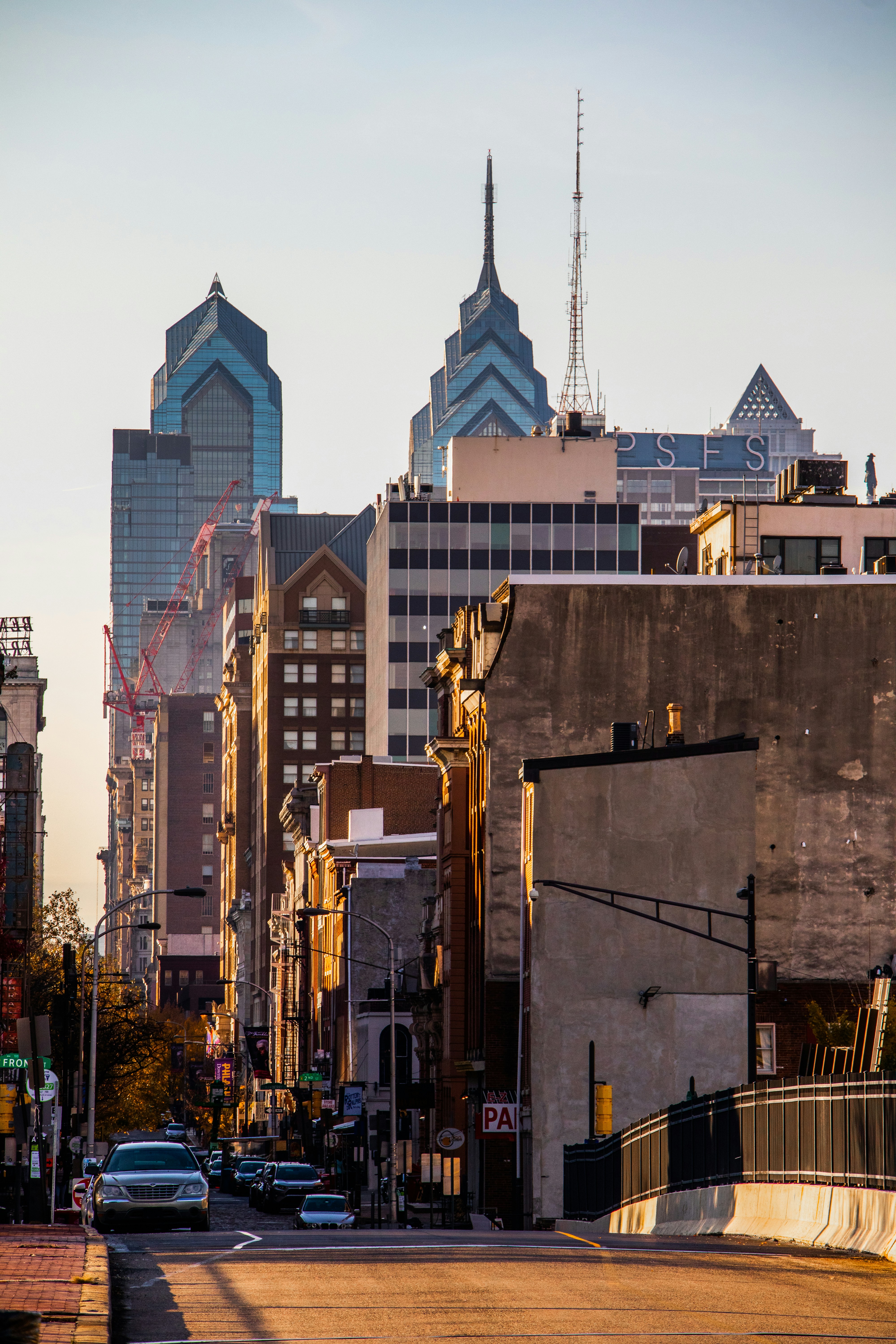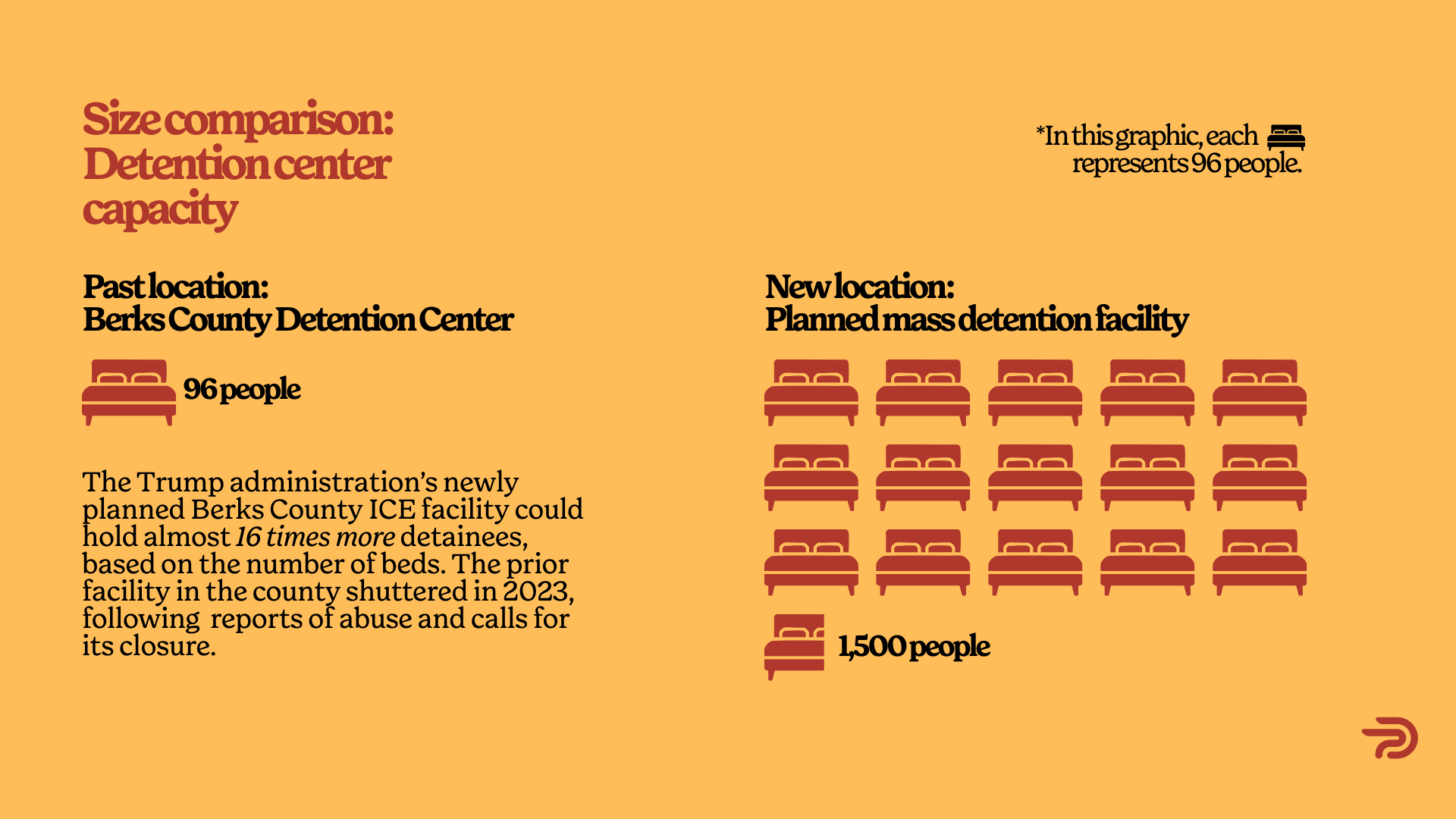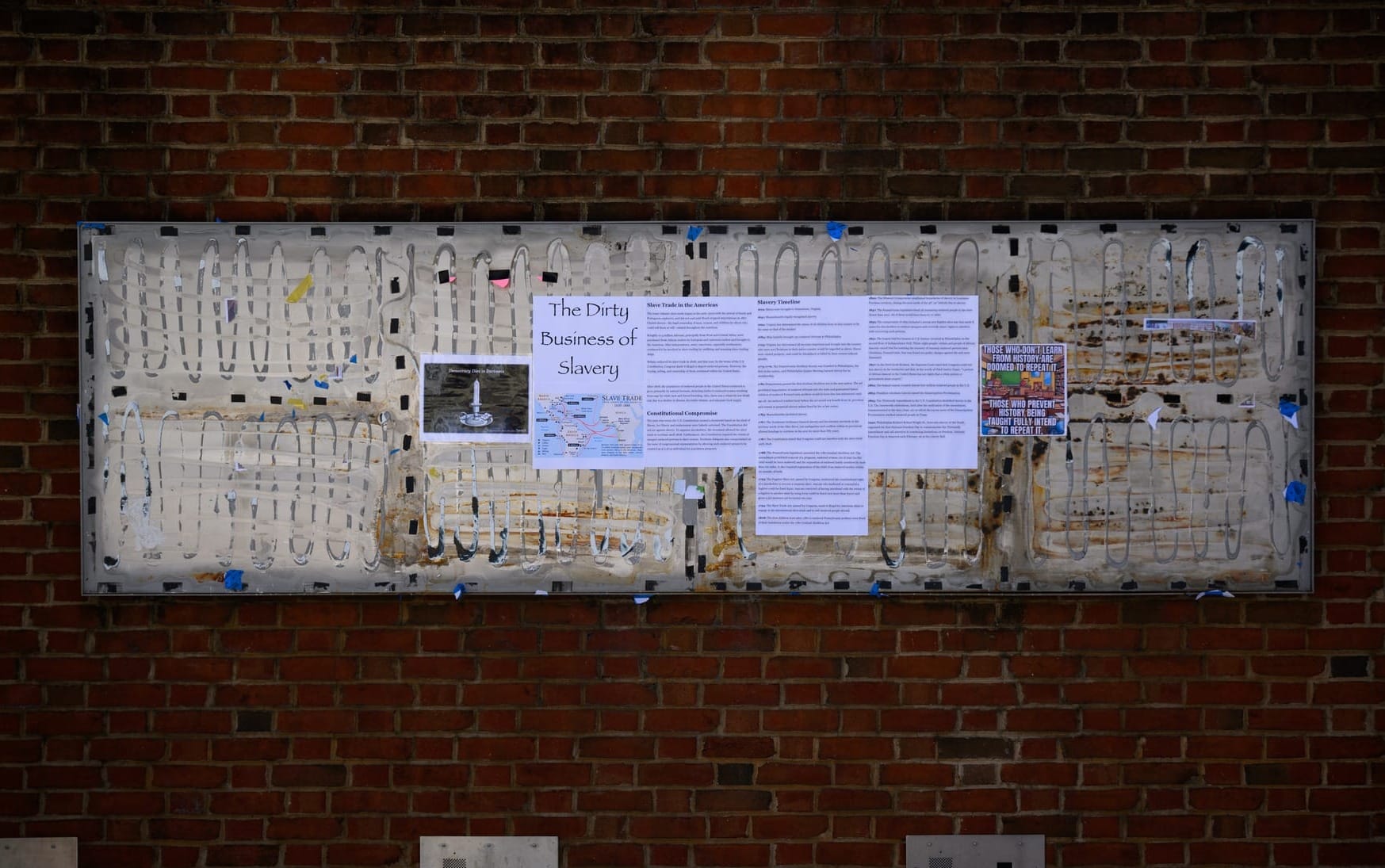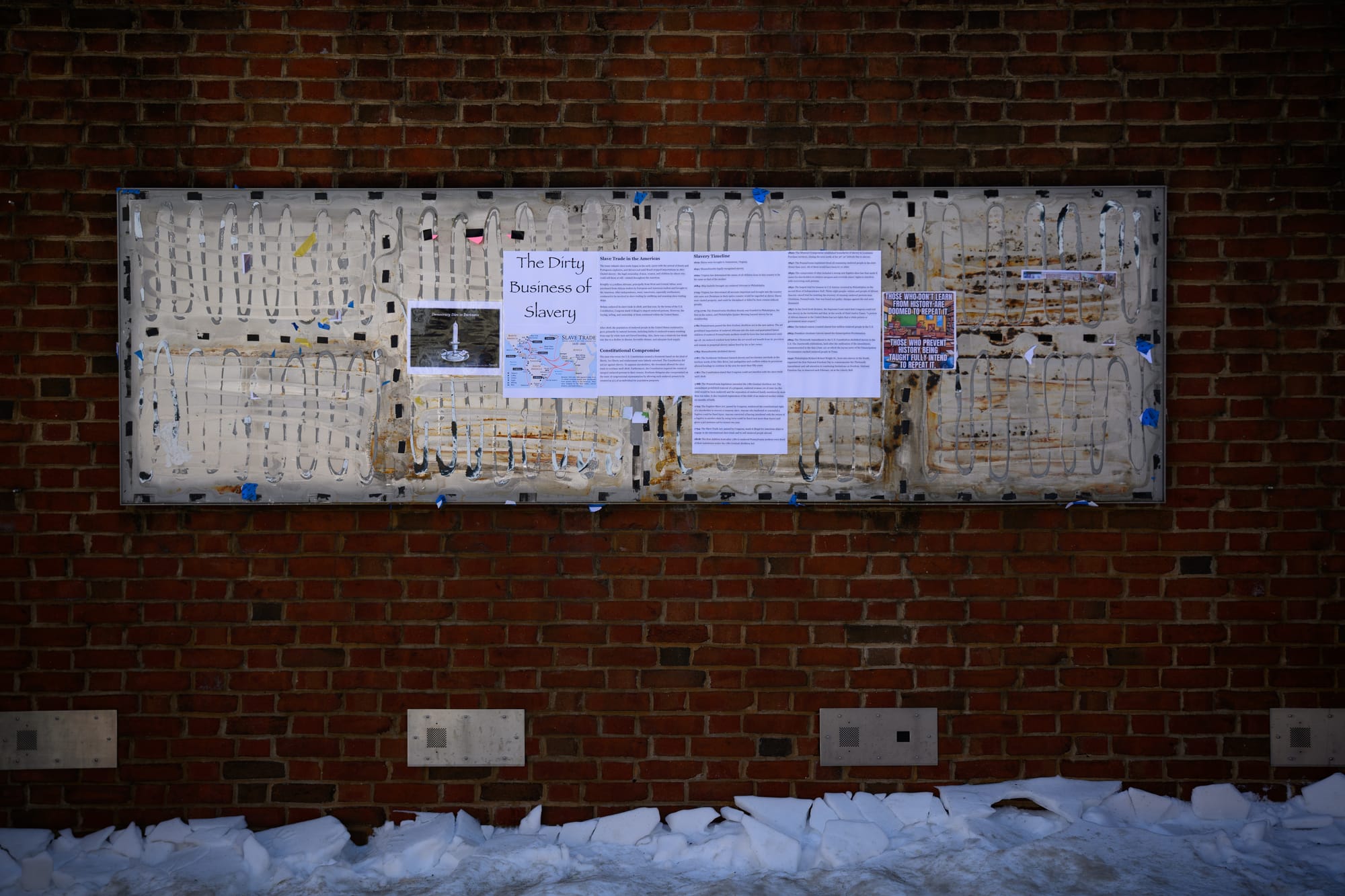The Crumble: Federal Cuts Deepen Philly's Housing Crisis As Grassroots Organizations Scramble
Philly Thrive, a nonprofit advocacy group fighting housing and environmental injustices, celebrates its tenth anniversary this October, awaits a $20 million grant— one that may never arrive under President Trump’s term.

Philly Thrive, Habitat for Humanity of Philadelphia, and the Energy Coordinating Agency await a $20 million grant— one that may never arrive under President Trump’s term.
“Everything was built on that grant— even our salaries,” said Shawmar Pitts, Managing Co-Director of Philly Thrive.
Philly Thrive, a nonprofit advocacy group fighting housing and environmental injustices, celebrates its tenth anniversary this October. But the group’s financial status isn’t prompting celebration— last month, Pitts and other leaders announced staff layoffs amid economic uncertainty.
According to Pitts, the funding from the ‘Community Change Grant Program’ facilitated through the United States Environmental Protection Agency (EPA) was scheduled to disperse to grant recipients in January. Pitts claims that Philly Thrive has yet to see a dime.
What’s the hold up? The Community Change Grant Program was an initiative prioritized under the Biden-Harris Administration. Trump’s appointed EPA Administrator, Lee Zeldin, has been actively working to undo previously approved allocations.
“The days of irresponsibly shoveling boat-loads of cash to far-left activist groups in the name of environmental justice and climate equity are over,” said Zeldin in a video posted to his X account in February.
Since then, a tug-of-war has ensued on the federal stage.
According to the EPA’s press office, Zeldin, in coordination with the Department of Government Efficiency (DOGE), has frozen over 400 environmental grants—equating to almost $2 billion in taxpayer revenue. The backing for Philly Thrive is swept up in this clawback.
Democrats are voicing objections— calling the cuts illegal. The $20 million allocated to the Energy Coordinating Agency (ECA) on behalf of Philly Thrive was intended for the creation of the Grays Ferry Community Resilience Hub. The proposed space aims to support vulnerable residents in the Grays Ferry neighborhood through educational programming, emergency assistance and shelter.
In March, an EPA press release deemed projects like the Grays Ferry Community Resilience Hub ‘unnecessary’. Veteran Philly Thrive member and long-time Grays Ferry resident, Rodney Ray, strongly disagrees. “The whole Grays Ferry community is going to benefit,” says Ray.
Ray leads Philly Thrive’s Alternatives to Gun Violence program, a campaign that teaches youth how to peacefully de-escalate potentially violent situations. He says additional funding would help further the program’s outreach. “We had to leave some children out. My thing is, no child left behind. We want to make this bigger than what it is.”
In addition to education, the project’s official proposal outlines whole home repairs for 189 Grays Ferry homes through Philadelphia's Built to Last framework, according to EPA records.
Pitts says the home-repair program is already underway. “We did sign-ups in May. So many people in our neighborhood were thankful. Now it’s on hold,” said Pitts.
With the organization's current budget, only 20 homes in the Grays Ferry neighborhood are scheduled for rehabilitation— a massive scale-down from the projected 189.
Philly Thrive and its partners are actively protesting the grant’s termination. A spokesperson for Habitat for Humanity Philadelphia, confirmed the organization has signed onto an amicus brief in the class action lawsuit and is awaiting the results of legal action. Though weighed down by circumstance, Pitts says that Philly Thrive will continue to work toward its mission— with or without monies from the Community Change Grant Program.
Not only are budgets crumbling— so are homes in Philadelphia.
Earlier this summer, a home in the Brewerytown region of North Philadelphia collapsed. By the time the Department of License and Inspection (L&I) got involved, the property’s structure was beyond repair. In Philadelphia, L&I inspects most residential properties on a need-by-need basis, per request. Philadelphians have outwardly criticized L&I’s systemic inefficiencies.
According to Pitts, residential collapses aren’t freak occurrences— housing fractures often land on Philly Thrive’s radar. He attributes property deterioration to gentrification efforts. “I saw cracks in my mom’s basement…It’s from them agitating the ground,” responded Pitts.
Ray claims two homes on his block are in critical condition. “The back of the houses are wide open. Birds are flying through,” said Ray.
Although Ray is able to maintain and beautify his property— he advocates for those who need assistance. “Some people can, some people can’t. But with the grant, the people who can’t will be able to,” said Ray.
Philly Thrive, along with other housing advocacy groups, is pushing City Council members to pass legislation requiring L&I to conduct routine, proactive inspections across the city. But the proposed ‘Right to Safety’ policy, included in the Safe Healthy Homes Act, has yet to move past committee.
The City of Philadelphia’s 2026 fiscal budget plan invests in home-restoration under the Housing Opportunities Made Easy (H.O.M.E) plan, but excludes funding for many community-led organizations, such as Philly Thrive. Philly Thrive does support the ‘Built to Last’ program powered by the Philadelphia Energy Authority (PEA). Although city appropriations are placed towards PEA— its fiscal allotment outlined in the 2026 budget was significantly cut.
In Philadelphia, the majority of stakeholders acknowledge the city’s housing crisis but the mixture of resource scarcity combined with conflicting priorities— fuels division.
Last month, Philly Thrive announced its budgetary dilemma on Instagram. The group created a GoFundMe campaign to usher in fiscal support. Pitts says that he doesn't expect donations from the public — but expects action. “When we stand, come stand with us. Be there. That’s what makes legislators move,” remarked Pitts.
Although wallets are tight, Pitts confirmed that the organization will still commemorate its 10-year milestone in some fashion.





